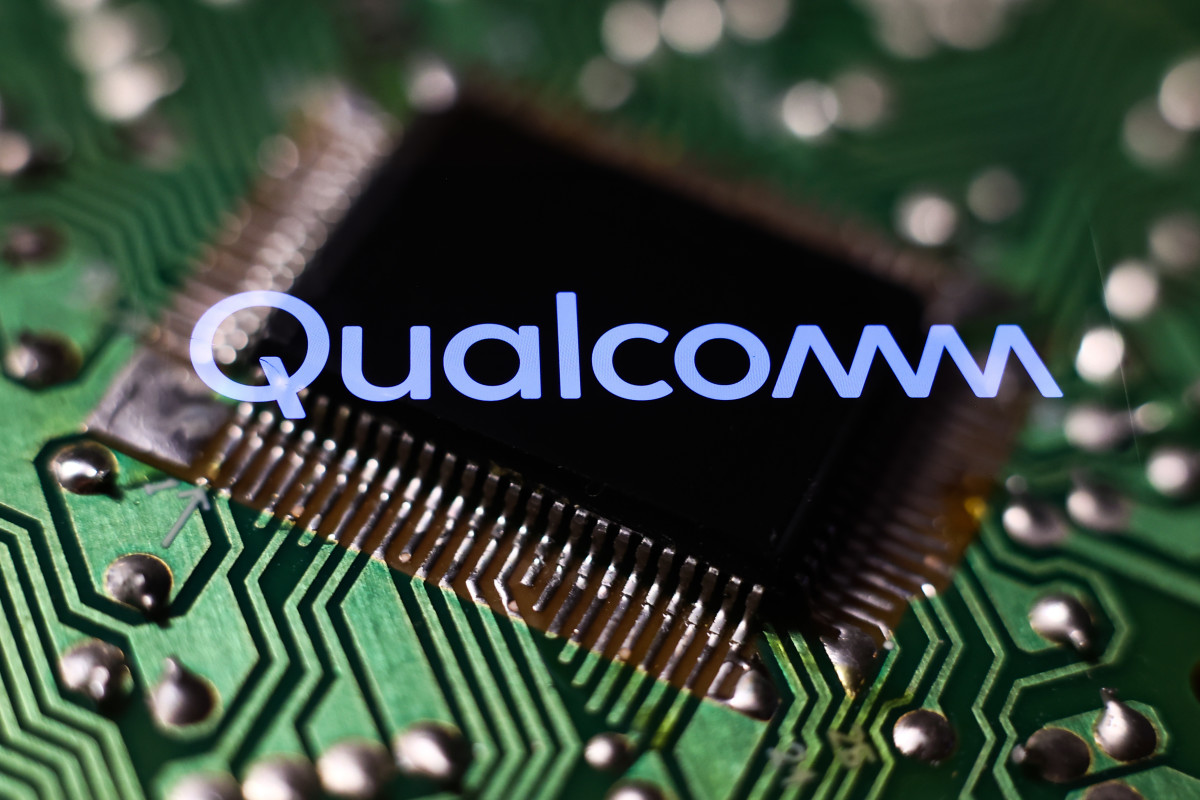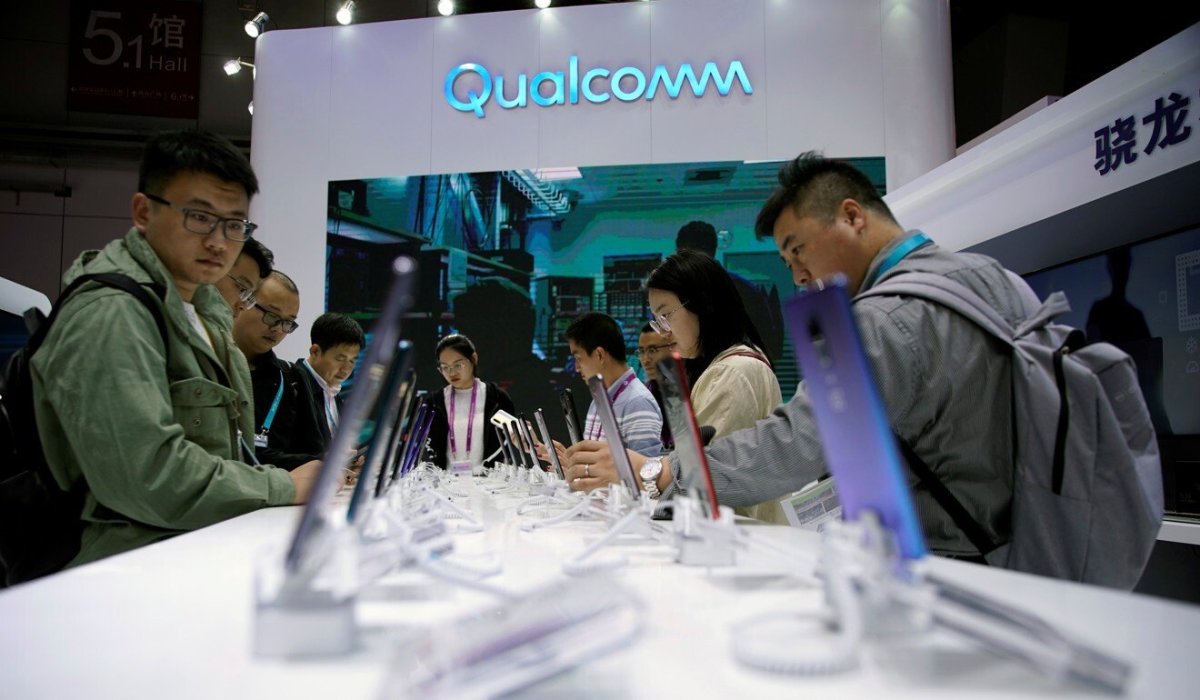
This isn't over.
On Dec. 20 a federal jury in Wilmington, Del., gave wireless-chip maker Qualcomm (QCOM) a partial victory in its legal battle with Arm Holdings (ARM) .
Related: Analyst adjusts Qualcomm stock price target ahead of earnings
Arm had accused Qualcomm of breaching the terms of a licensing agreement after Qualcomm acquired startup Nuvia in March 2021 for $1.4 billion and then used Nuvia's technology without paying Arm a higher licensing rate.
Qualcomm and Nuvia wanted to use the technology to advance QCOM's product line in current and new markets, including smartphones, PCs, automotive, and consumer and industrial internet of things.
Jurors found that Qualcomm did not breach the Arm license and that its current chip lineup was properly licensed under an existing Arm deal. But they could not reach a unanimous decision on whether Nuvia breached its own Arm license, prompting the judge to declare a mistrial, Reuters reported.
“I don’t think either side had a clear victory or would have had a clear victory if this case is tried again,” U.S. District Judge Maryellen Noreika said.
Arm claimed the Nuvia agreement should have been renegotiated after Qualcomm bought the startup and demanded that the San Diego company destroy designs it got in the buyout.

Qualcomm CEO: Arm created uncertainty
Arm, a UK semiconductor and software design company majority-owned by Japan’s SoftBank Group, (SFTBY) started the legal proceeding against Qualcomm in 2022.
Arm said on X that it was "disappointed that the jury was unable to reach consensus across the claims."
Related: New trade war with China could be a major blow to top tech stocks
"We intend to seek a retrial due to the jury’s deadlock," the company said. "From the outset, our top priority has been to protect Arm’s IP and the unparalleled ecosystem we have built with our valued partners over more than 30 years.
"As always, we are committed to fostering innovation in our rapidly evolving market and serving our partners while advancing the future of computing."
During the trial, Qualcomm's chief executive, Cristiano Amon, testified that Arm needlessly “created uncertainty” among Qualcomm’s customers — including mobile-phone maker Samsung Electronics SSNGY— by duping them into thinking that a license to use Arm’s technology would expire in 2025, Bloomberg reported.
Samsung became concerned that access to Qualcomm’s chips, which it uses in its phones, might be cut off, Amon said.
“That was not good for Qualcomm, our customers, or frankly, for Arm,” Amon told jurors.
Under cross-examination, Amon said Qualcomm would honor valid licensing commitments despite the falling out with Arm.
Asked whether business frictions justified breaching its pact with Arm, Amon said, “I don’t think companies should do that.”
Nuvia Co-Founder Gerard Williams testified that the startup used only “1% or less” of Arm technology in its finished technology.
Qualcomm's internal documents showed the company projected it could save as much as $1.4 billion every year on payments to Arm, according to testimony at the trial.
The company is one of Arm’s biggest customers and a longtime partner, but the companies have grown increasingly at odds as they’ve become rivals in the computer-processor industry.
Veteran trader: Ruling clears Qualcomm to pursue AI PC market
The world’s largest maker of mobile-phone processors said in a statement that "the jury has vindicated Qualcomm’s right to innovate and affirmed that all the Qualcomm products at issue in the case are protected by Qualcomm’s contract with Arm."
"We will continue to develop performance-leading, world-class products that benefit consumers worldwide, with our incredible Oryon ARM-compliant custom CPUs," the company said.
More Tech Stocks:
- Major Apple chip supplier is expanding into the U.S.
- Analysts unveil Tempus AI stock price targets
- Analysts update GE Vernova stock price target after investor meeting
Qualcomm began developing Oryon in 2021 after acquiring Nuvia.
TheStreet Pro's Chris Versace said on Dec. 23 that the ruling cleared Qualcomm to pursue the AI PC market as part of its larger revenue diversification strategy and removed an overhang that had been on the shares for the past several weeks.
"Our view has been that as Qualcomm makes progress on its revenue diversification plan, tapping into the AI PC, [internet of things], and auto-chip markets to lessen its smartphone reliance, Wall Street will need to rethink how it values the shares," the veteran trader said.
"We see this ruling beginning that process and with a little bit of room still in the portfolio’s Qualcomm position, we’ll aim to pick up a few more shares later today," he added.
Deutsche Bank said that Qualcomm appeared to have won the first round and Arm was likely to be disappointed.
The investment firm generally viewed these findings as incremental and said investor focus can rightly return to each company's respective core fundamentals.
JP Morgan, which affirmed an overweight rating on Qualcomm shares, said the judgment favoring Qualcomm in the suit with Arm “first and foremost puts to bed a lot of uncertainty in the mind of investors relative to financial implications of an unfavorable judgment and potentially any effect from cancellation of a license.”
Despite the favorable outcome, JP Morgan did not rule out further litigation from Arm and potentially a “more amicable approach” from Qualcomm to allow tweaking of the terms of their architecture license agreements in the medium term.
However, JP Morgan said the ruling “handed Qualcomm a significant leverage for any future litigation."
Related: Veteran fund manager delivers alarming S&P 500 forecast







